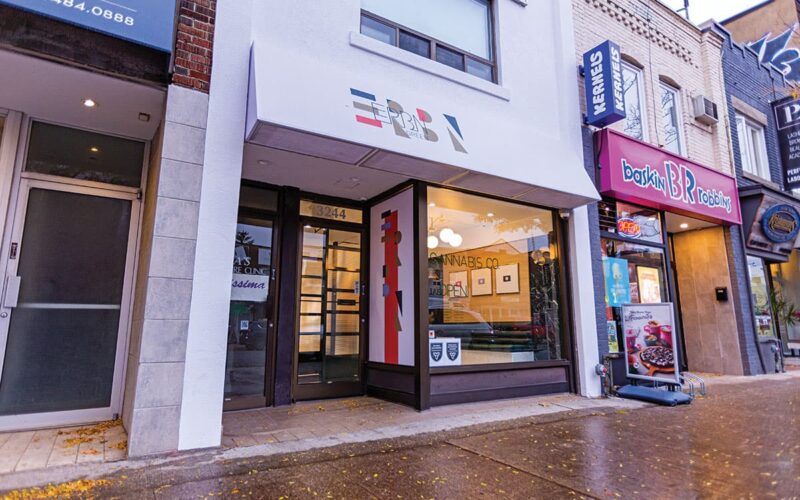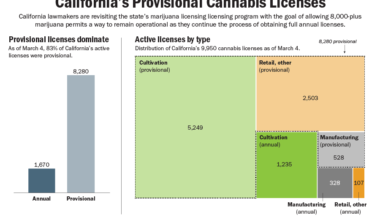(This story appears in the February issue of Marijuana Business Magazine.)
From mom-and-pop shops to corporate chains, everyone in the retail business knows that a carefully chosen location is key to success.
Medical marijuana dispensaries and adult-use cannabis retailers are no exception.
Although regulatory requirements, license availability and market demand will vary from place to place, marijuana retailers on the hunt for a killer location might benefit from:
- Understanding both immediate local markets and regional trends.
- Creative thinking to find underserved locations—particularly for smaller players.
- Carefully considering the potential benefits and drawbacks of buying versus leasing.
- Identifying future markets before local officials start writing ordinances, then engaging early.
Think local, but also regional
Prospective cannabis store operators need to get intimately familiar with the area where they want to open, advises Michael Lord, chief operating officer at Colorado cannabis firm LivWell Enlightened Health, which operates 22 dispensaries across the state.
“Google Earth does not articulate a true representation of boots on the ground,” Lord said. “I think a lot of people are siting (stores) in areas that perhaps they’ve never visited, putting locations (based on) just what looks good on a map.
“It can vary in a neighborhood from street to street. … And I think that businesses, at the end of the day, still have to have a finger on the pulse of the communities that they operate in.”
Knowing your prospective local market is certainly important, but Stephanie Goodman, CEO of Michigan cannabis real estate brokerage Bricks and Mortar Group, also recommends doing regional market research in surrounding areas.
“You might think you’ve got this great spot and they’re only going to issue two licenses in the city, but immediately next door, it’s unlimited (licenses),” she said. “Knowing those types of things helps you forecast for future sales.”
Brian Mitchell, CEO of Los Angeles-based marijuana company Shryne Group, says the company sees the biggest opportunities in areas of California that still lack local cannabis retailers. More than 30 California cities and counties voted in favor of pro-cannabis business initiatives in the November 2020 election, paving the way for new stores in some places.
“If I see an area that has 100,000 people, and they’re going to allow two stores, and then you have another 100,000 people in the town next door, and there’s no cannabis there, that’s a really good opportunity.”
Carving out your own niche
Elev8 Cannabis founder and CEO Seun Adedeji, who opened a single dispensary location in Oregon before expanding into Massachusetts, believes smaller, less-capitalized businesses can benefit from opening in smaller towns.
Adedeji focused Elev8’s Massachusetts expansion on border towns near New Hampshire, New York and Vermont, where acquiring real estate is cheaper than in bigger cities.
“The beauty is, because of the limitations of licenses, each of those small towns are only giving out two recreational licenses,” Adedeji said. “So your value still increases.”
Smaller towns might have their charms, but a border strategy such as Adedeji’s can also work within cities.
Erbn Green Cannabis Co., a small Canadian retailer that opened its first location in the competitive Toronto market in October, found a location in the uptown area of that city.
It might not be a hot address compared to the city’s downtown core, but Chief Compliance Officer Farrell Miller said the location meets demand in an underserved market near two suburbs that opted out of allowing cannabis stores.
“We’ve had a lot of customers that live north of the 401 (highway nearby), and there’s not a lot of activity north of the 401 at all. They come in and they tell us that we’re the closest one to them,” Miller said.
Erbn Green’s second location is in Picton, Ontario, a small community with less competition for cannabis store licenses than in big cities such as Toronto or Ottawa.
“This town is getting really known for wineries and tourism,” Miller said. “We eventually see cannabis aligning with those things.”
To buy or to lease?
Elev8’s Adedeji got burned when the landlord for his first Oregon store declined to renew the lease and he had to find a new location. As a result, Adedeji is a strong proponent of retail operators buying real estate instead of leasing, when possible.
“I would say, for anybody looking to get into a leasing option, have a 10-year lease with an option of an additional 10 years,” he said.
In Michigan, real estate broker Goodman said marijuana’s federal illegality contributes to landlords’ hesitancy to lease to cannabis businesses. Property owners fear running afoul of their mortgage lenders, she explained.
“We’re seeing more private funding on the purchasing side, and they’ll lease back to the operator,” Goodman said.
For well-capitalized players, buying and then executing a leaseback deal can bring some advantages. LivWell’s Lord said the company acquires some properties, then sells them to partners who will lease the locations back to the dispensary operator.
“That allows us to go and execute and use that capital for continued expansion rather than having it tied up in the real estate itself,” he said.
Dispensaries that plan on leasing might be able to take advantage of the commercial real estate climate during COVID-19, advised Shryne Group’s Mitchell.
“We’ve shown that we’re a growing industry that’s recession- or even pandemic-proof,” he said. “It’s given us more leverage to negotiate better deals with landlords, to get market rates.”
Get a head start
Smaller players might score an advantage in the dispensary real estate game by identifying potential markets before regulators start offering licenses, then engaging local officials early, Goodman said.
“In that scenario, I’d recommend that you start working with the city before they’ve written any ordinances and then work with them to get the ordinance written for what you want to do,” she said.
“We’ve seen quite a few of those work out. They do like local businesses, but it’s a longer play. It might take six to 12 months to get that done.”
Goodman also recommends spending time engaging with the local community.
“We’ve worked in a lot of cities where the residents are completely terrified of cannabis businesses,” she said. “But once they start to get to know you, and there’s actually a face associated with the business that wants to come in, it’s different.”
If you’re looking to open a dispensary in a particularly competitive market, Goodman said, “you need to be ready to put hard money down within a week or two.”
Those willing to do business in markets with lots of licenses available might have more time to shop around, Goodman added. “But generally, to get a good location, you’re going to have to be ready to commit immediately and move forward fast.”
Medical Disclaimer:
The information provided in these blog posts is intended for general informational and educational purposes only. It is not a substitute for professional medical advice, diagnosis, or treatment. Always seek the advice of your physician or other qualified healthcare provider with any questions you may have regarding a medical condition. The use of any information provided in these blog posts is solely at your own risk. The authors and the website do not recommend or endorse any specific products, treatments, or procedures mentioned. Reliance on any information in these blog posts is solely at your own discretion.







